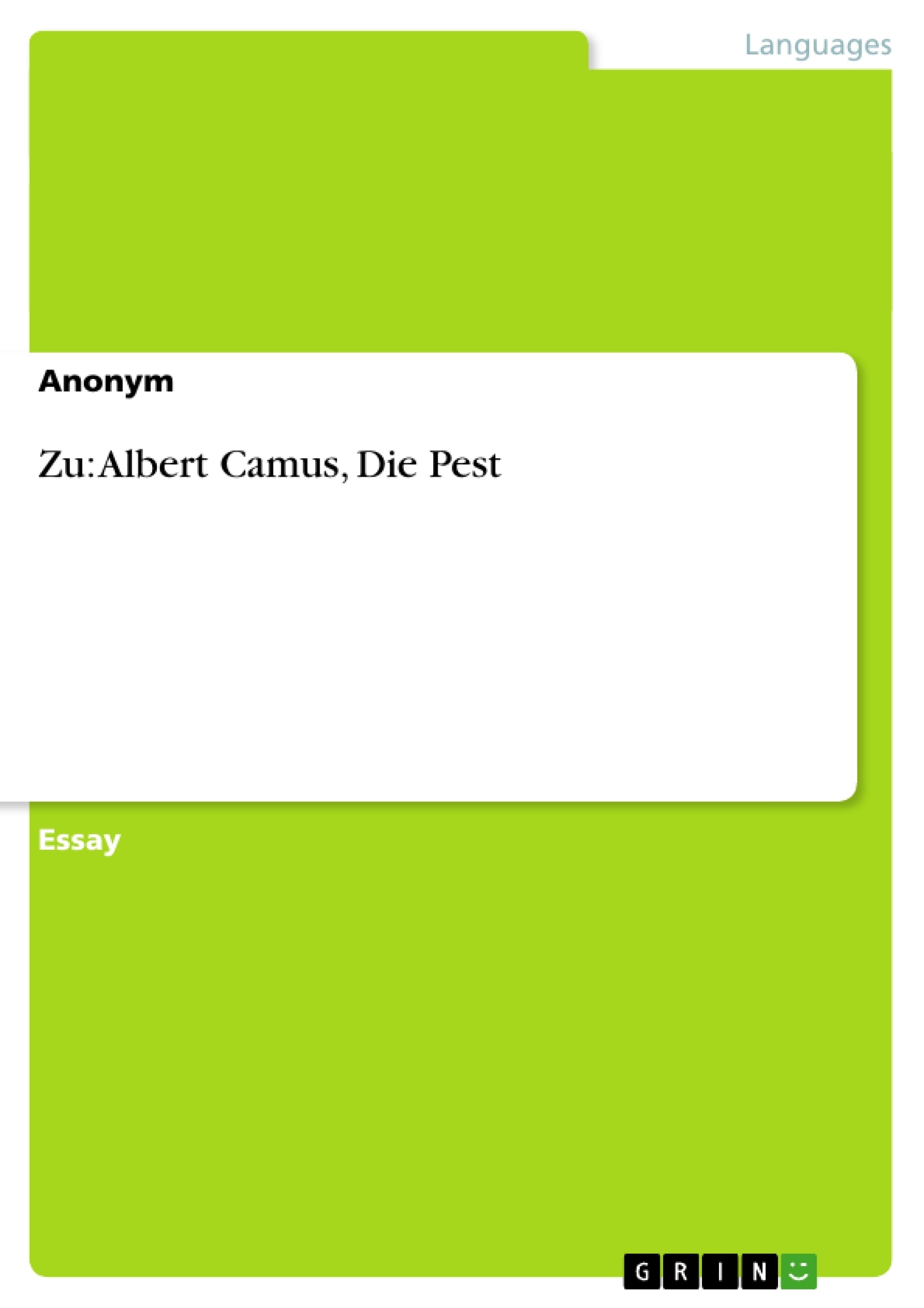Albert Camus understood the novel as philosophy translated into images. His characters embody ethical theorems and enact the respective patterns of behaviour. This applies also to Tarrou, besides Rieux and Rambert one of the main characters in Camus’ novel The Plague, which was begun and secretly spread as an underground testimony during the author’s time at the résistance newspaper Combat, to be published in its complete form in 1947. Four main discourses intersect in Tarrou. His persona is constituted by the discourses of Truth, History, Life and Death. The following is an examination of them and the relations between them. (The relations are signalled to some extent by ‘links’ in capital letters). Since Camus shaped Tarrou in part after himself - Tarrou’s biography resembles Camus’ unfinished autobiography The First Man - this may also shed some light on the intellectual and emotional forces at work in Camus when he was writing down The Plague.
Inhaltsverzeichnis (Table of Contents)
- INTRODUCTION
- TRUTH
- HISTORY
- LIFE
- DEATH
Zielsetzung und Themenschwerpunkte (Objectives and Key Themes)
This analysis explores the character of Tarrou in Albert Camus' novel The Plague, examining his relationship with truth, history, life, and death. Through an exploration of these discourses, the text sheds light on the intellectual and emotional forces at play in Camus' own life and work.
- Tarrou's profound connection with truth and his aversion to comforting lies.
- The impact of a traumatic personal history on Tarrou's worldview.
- Tarrou's confrontation with the inherent evil within human nature.
- The inevitability of death and its role in shaping human experience.
- The struggle against evil and the limitations of human agency.
Zusammenfassung der Kapitel (Chapter Summaries)
INTRODUCTION
This introductory chapter establishes the framework for the analysis of Tarrou's character. It highlights the intersection of four key discourses: truth, history, life, and death, which are central to understanding his persona.
TRUTH
This chapter delves into Tarrou's relationship with truth, emphasizing his rejection of illusions and his embrace of the harsh realities of human nature. It draws parallels between Tarrou's perspective and Freud's writings, particularly Thoughts for the Times on War and Death, both emphasizing the deeply rooted murderous instincts within humanity.
HISTORY
This chapter explores the origins of Tarrou's commitment to truth, tracing it back to a traumatic event in his youth. Witnessing his father's pursuit of a death sentence, Tarrou experiences a profound identification with the victim, leading to a lifelong preoccupation with the death penalty and the inherent violence within human nature. It also discusses the impact of this trauma on Tarrou's later involvement with anti-authority actions, which ultimately challenge his own morality.
Schlüsselwörter (Keywords)
This analysis focuses on the themes of truth, history, life, and death as they manifest in the character of Tarrou. The text examines the relationship between personal experience and worldview, the inherent violence of human nature, and the struggle against evil. The analysis also draws on the works of Sigmund Freud and Cathy Caruth, highlighting their contributions to understanding the nature of trauma and the impact of history on individual experience.
- Quote paper
- Anonym (Author), 2004, Zu: Albert Camus, Die Pest, Munich, GRIN Verlag, https://www.grin.com/document/71900




